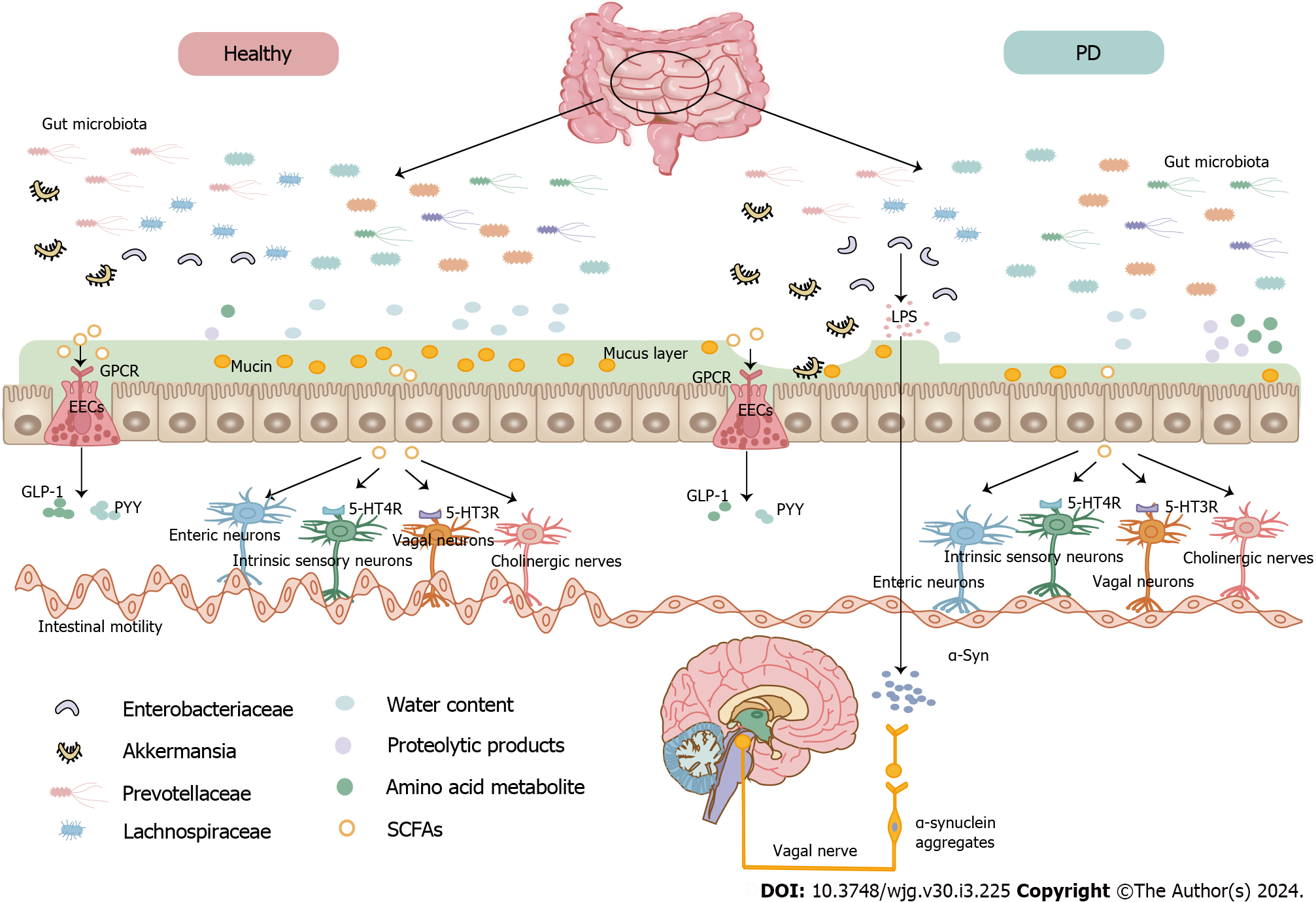Copyright
©The Author(s) 2024.
World J Gastroenterol. Jan 21, 2024; 30(3): 225-237
Published online Jan 21, 2024. doi: 10.3748/wjg.v30.i3.225
Published online Jan 21, 2024. doi: 10.3748/wjg.v30.i3.225
Figure 1 Changes in microbiota composition and metabolites have been associated with the pathogenic mechanisms of Parkinson’s disease-related constipation.
Microbiota in patients with Parkinson’s disease exhibited a shift in colonic microbiota metabolism away from carbohydrate fermentation and toward proteolysis, resulting in decreased short-chain fatty acids (SCFAs) production and increased proteolytic metabolite levels. Reduced SCFAs production causes a delay in colon transit time. Enhanced proteolytic fermentation has been linked to increased colon transit time. GLP-1: Glucagon-like peptide 1; PD: Parkinson’s disease; PYY: Peptide tyrosine tyrosine; α-syn: α-synuclein; 5-HT4R: 5-HT4 receptors; 5-HT3R: 5-HT3 receptors; EECs: Enteroendocrine cells; GPCR: G protein-coupled receptors; LPS: Lipopolysaccharide; SCFAs: Short-chain fatty acids.
- Citation: Yuan XY, Chen YS, Liu Z. Relationship among Parkinson’s disease, constipation, microbes, and microbiological therapy. World J Gastroenterol 2024; 30(3): 225-237
- URL: https://www.wjgnet.com/1007-9327/full/v30/i3/225.htm
- DOI: https://dx.doi.org/10.3748/wjg.v30.i3.225









